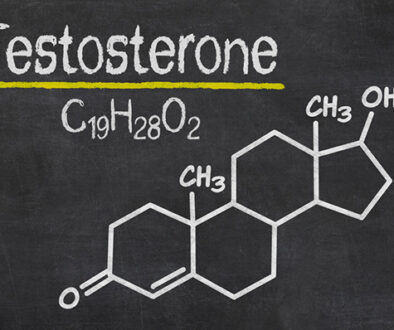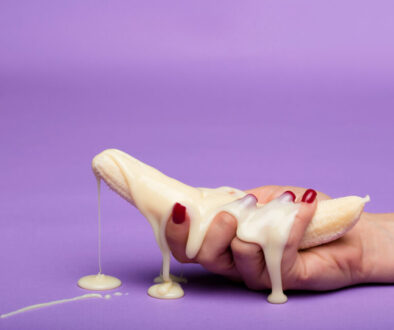Erectile Dysfunction in Young Males: Causes and Treatments
Erectile dysfunction (ED) is often associated with older men, but a growing number of younger males are experiencing this condition. Recent studies indicate that approximately 20% of men seeking treatment for ED are under the age of 40. Understanding the causes and available treatments for ED in young males is crucial, as it can significantly impact their quality of life, self-esteem, and relationships.
Understanding Erectile Dysfunction
Erectile dysfunction is defined as the inability to achieve or maintain an erection sufficient for satisfactory sexual performance. While occasional difficulties in achieving an erection are common and usually not a cause for concern, persistent issues may indicate underlying health problems.
Common Symptoms
- Difficulty getting an erection
- Trouble maintaining an erection during sexual activities
- Reduced sexual desire or libido
Causes of Erectile Dysfunction in Young Males
1. Psychological Factors
Psychological issues are among the most prevalent causes of ED in younger men. Factors include:
-
Anxiety and Stress: Performance anxiety, especially during sexual encounters, can hinder erection. Stress from work, relationships, or academic pressures can also play a significant role.
-
Depression: Depression can decrease libido and lead to difficulties in sexual performance. It may create a cycle where ED exacerbates feelings of inadequacy, further worsening depression.
-
Body Image Issues: Concerns about physical appearance can contribute to anxiety and self-consciousness, affecting sexual performance.
2. Lifestyle Factors
Several lifestyle choices can contribute to ED:
-
Poor Diet: Diets high in saturated fats and sugar can lead to weight gain and related health issues, affecting erectile function. Foods rich in antioxidants and healthy fats can improve overall health and potentially enhance sexual performance.
-
Lack of Exercise: Sedentary lifestyles can contribute to poor cardiovascular health, which is essential for adequate blood flow necessary for an erection.
-
Smoking and Alcohol Use: Both smoking and excessive alcohol consumption are linked to erectile dysfunction. Smoking damages blood vessels, restricting blood flow, while alcohol can impair sexual performance.
3. Medical Conditions
Certain medical conditions can lead to ED, even in younger males:
-
Diabetes: Type 1 and Type 2 diabetes can affect nerve function and blood flow, making it difficult to achieve an erection.
-
Hormonal Imbalances: Low testosterone levels can impact libido and erectile function. Hormonal imbalances can occur due to various factors, including stress and obesity.
-
Cardiovascular Issues: Conditions affecting blood flow, such as hypertension and atherosclerosis, can lead to ED.
4. Medications
Certain medications can cause erectile dysfunction as a side effect. Common categories include:
-
Antidepressants: Some medications used to treat depression can lead to sexual side effects, including ED.
-
Antihypertensives: Drugs for high blood pressure can affect sexual function in some men.
-
Recreational Drugs: Use of substances like cocaine and marijuana can also interfere with sexual performance.
Diagnosing Erectile Dysfunction
If you are experiencing persistent issues with erectile dysfunction, it’s essential to consult a healthcare provider. The diagnostic process may involve:
-
Medical History: Discussing your sexual history, lifestyle factors, and any medical conditions with a healthcare professional.
-
Physical Examination: A thorough examination to rule out any underlying health issues.
-
Laboratory Tests: Blood tests may be conducted to assess hormone levels, blood sugar, and cholesterol.
Treatment Options for Erectile Dysfunction
Fortunately, there are various effective treatments for ED. Options can be categorized into lifestyle changes, psychological interventions, medical treatments, and alternative therapies.
1. Lifestyle Modifications
-
Dietary Changes: Incorporating a balanced diet rich in fruits, vegetables, whole grains, and healthy fats can improve overall health. Foods such as spinach, nuts, berries, and fatty fish are particularly beneficial.
-
Regular Exercise: Engaging in regular physical activity can enhance cardiovascular health, improve mood, and promote healthy blood flow. Aim for at least 150 minutes of moderate exercise each week.
-
Quitting Smoking and Reducing Alcohol Intake: Stopping smoking and moderating alcohol consumption can improve sexual health.
2. Psychological Counseling
For those whose ED is rooted in psychological factors, counseling or therapy may be beneficial. Cognitive-behavioral therapy (CBT) is often effective in addressing anxiety, depression, and body image issues. Couples therapy can also be valuable for improving communication and intimacy in relationships.
3. Medical Treatments
Several medical treatments are available for erectile dysfunction:
-
Oral Medications: Phosphodiesterase type 5 (PDE5) inhibitors, such as sildenafil (Viagra), tadalafil (Cialis), and vardenafil (Levitra), are commonly prescribed. These medications increase blood flow to the penis, facilitating an erection in response to sexual stimulation.
-
Hormonal Therapy: If low testosterone levels are identified as a cause of ED, hormone replacement therapy may be an option. This should be approached cautiously and under medical supervision.
-
Vacuum Erection Devices (VEDs): These devices create a vacuum around the penis, drawing blood into it to facilitate an erection. They can be an effective non-invasive option.
-
Intracavernosal Injections: Medications can be injected directly into the penis to induce an erection. This method is effective for many men who do not respond to oral medications.
4. Alternative Therapies
Some individuals may explore alternative treatments, such as herbal supplements or acupuncture. However, it is crucial to approach these options with caution, as their efficacy is often unproven, and they may interact with other medications. Always consult a healthcare provider before trying new treatments.
Conclusion
Erectile dysfunction is not solely a condition of older men; young males increasingly face this issue. Understanding the various causes—from psychological factors to lifestyle choices and medical conditions—can empower young men to seek help. Fortunately, a wide range of effective treatments is available, including lifestyle changes, psychological counseling, and medical interventions. Open communication with healthcare providers and partners can lead to improved outcomes and a better quality of life.
If you or someone you know is struggling with erectile dysfunction, remember that seeking help is a sign of strength, and numerous resources are available to address this common condition.



